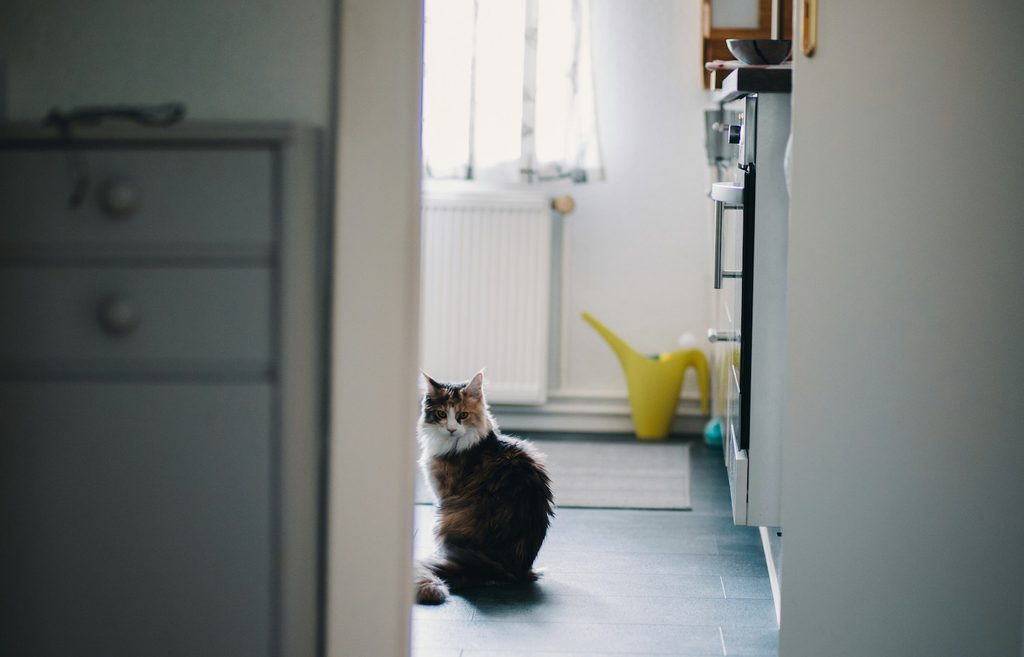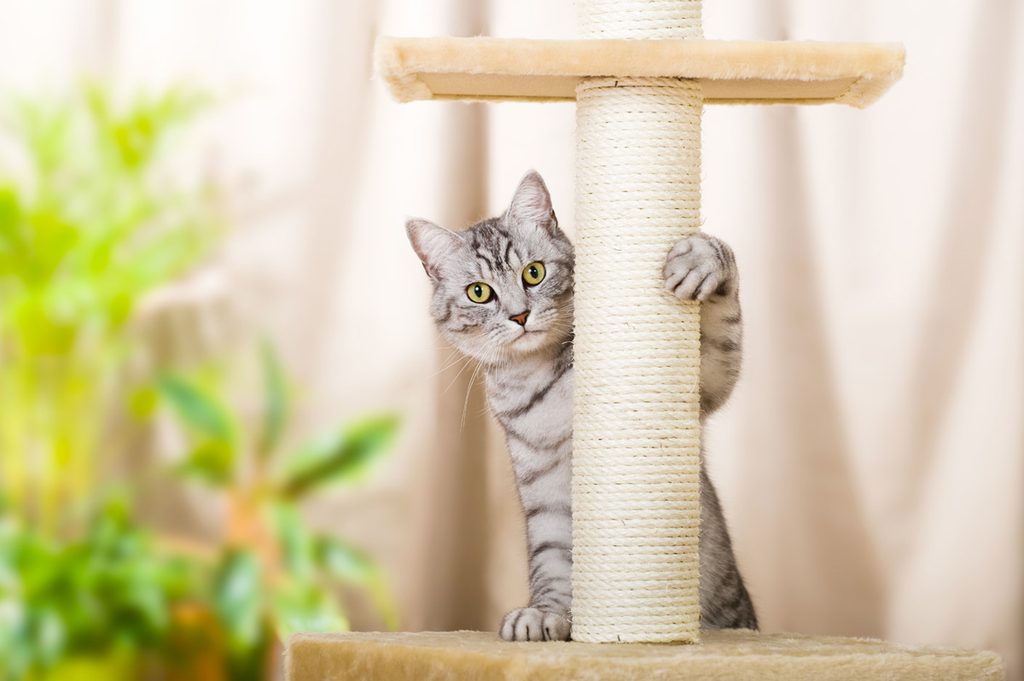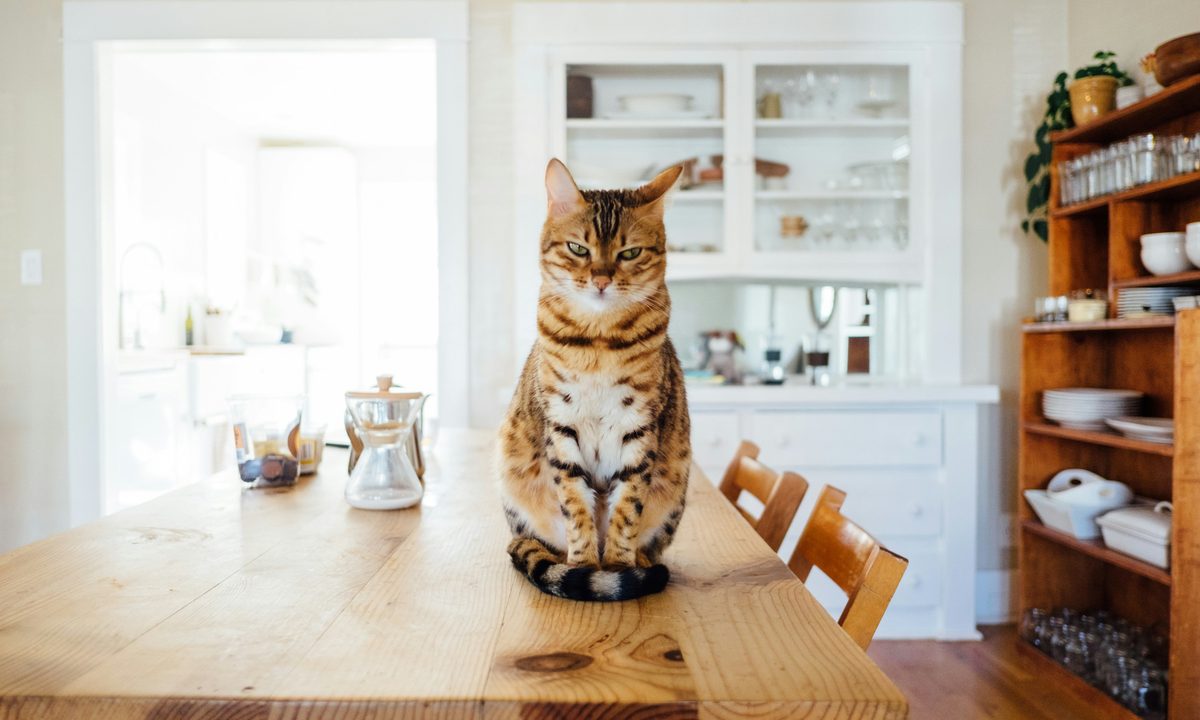Every cat owner knows that living with a feline means never having privacy. They follow you into the bathroom, the bedroom, and of course, the kitchen. Any door you’re behind, in particular, becomes a cat nemesis. But why do cats hate closed doors? It turns out that the answer, like so much of pet behavior, comes from a complex place of modern living and ancestral instincts. Here’s what you need to know about why your kitty detests you shutting them out and what you can do to keep your paint intact.
Why do cats hate closed doors?

When you go to the bathroom and shut the door, you might instantly hear the sounds of a cat positively shredding the outside (see also velcro dogs). It’s not just that they want desperately to be near you, though. Cats have a unique perspective on their own space and a need to control it. After all, your house is theirs, too.
First, we have the issue of cat FOMO. Yup, you read that right, the dreaded Fear of Missing Out. Our animals experience this phenomenon just like us. While we might scroll social media and get jealous of our friend’s vacation, four-legged friends instead desperately want to know why you closed the door to the bedroom. Dr. Karen Sueda, veterinary behaviorist, told LiveScience: “The FOMO of like, ‘I don’t know what’s on the other side, and I want to go see and figure it out.'” We knew our cats were curious, but it’s still surprising to learn how much of their quirks come from that need to discover.
Additionally, cats feel like they must know and impact their surroundings — in part because they sit in a weird place in their ecosystems. Remember that in the wild, small felines are both predator and prey. “‘Cats like to control access to spaces and vital basic needs and territory,” Johnson told Live Science. “It doesn’t make them mean. It doesn’t make them anything other than a species that is both predator and prey that has to hunt to survive but also has to feel safe and secure in their environment.'” That also explains why our fur babies turn boxes into tiny dens to make them snug and protected from the outside world.
How can you stop your cat from scratching at the door?

We want to stress that this is a totally normal behavior to scratch the door and not at all a sign of something wrong with your pet, but that doesn’t make it any less frustrating. Don’t worry; there’s hope for your doorframe. Follow these tips to prevent the worst of it and consider scratch protectors on the hardest hit areas.
Stay consistent
Far better to have some areas off limits than to let your cat in sometimes but not other times. While this might be unavoidable on occasion (you both need to use the bathroom but you want privacy during your shower), so it can help to keep a few cat-free areas. Eventually, they’ll give up and leave those spaces alone (hopefully).
Provide scratching posts
Cats need to scratch — it’s in their nature and helps trim their claws. A well-placed post can give your beastie the opportunity to get out their issues on an approved surface. Once you figure out what spots your cat loves to tear up the most, deck out those locations with as many scratching posts as you can fit.
Keep toys around
Lastly, play can deflect some of that cat energy and frustration from taking over and destroying your walls. But be mindful not to overstimulate your mouser. Recent research suggests that too much playtime can have the reverse effect. Other stressors may also increase scratching behavior, so look at your pet’s environment holistically to determine if your cat feels overwhelmed.
Cats love to follow us around, but they turn positively mad when we close the door on them. To maintain your baseboards and your sanity, try to follow our tips as best you can. Also keep in mind that your pet might have more stress than you realize, especially if you have a child in the house or another pet. Setting aside some specific playtime goes a long way to mitigating this anxiety response. Also look for any excess noise, an overflowing litter box, or disruptions to the routine. When you suddenly switch from fully remote to hybrid, expect some acting out from your best friend. One last thing that might work: cat pheromone diffusers. While the research is limited, they seem promising.





